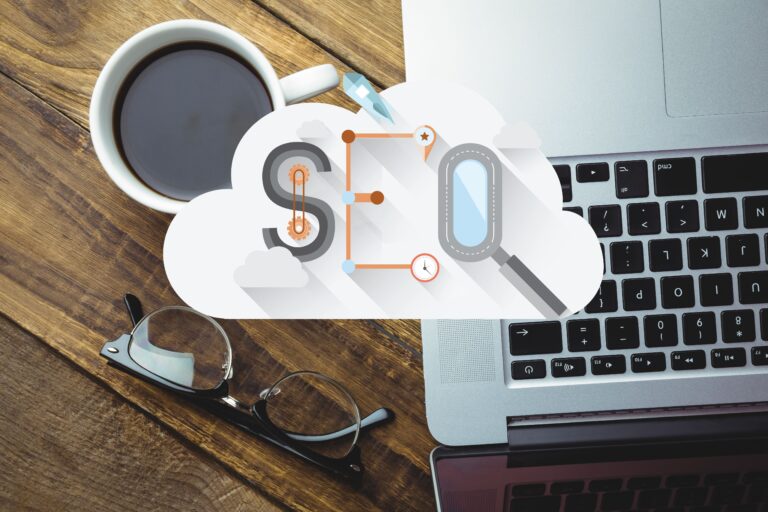Is your company in need of visibility, customer loyalty, increased conversion rates, and, in short, looking to enhance its business efficiency? These marketing challenges have multiple solutions.
In this article, we’ll explore two particularly interesting solutions: email marketing and marketing automation. What are their advantages and differences?
What is Email Marketing?
Email marketing refers to one of the many forms of marketing that allows you to automate the sending of emails to your clients and prospects directly. Email marketing has a commercial purpose and promotes a product or service.
Advantages of Email Marketing:
Personalized Content for Prospects:
Addressing personalized content to prospects on your customer base is crucial for effective commercial outreach. Personalizing content through email marketing allows you to send targeted messages to each recipient.
- Mentioning the recipient’s name in the email.
- Creating compelling subject lines to grab attention and generate a high open rate.
- Optimizing email deliverability to reduce the risk of landing in spam folders. Automation in segmenting your base allows sending messages with content tailored to the interests of each prospect.
Collecting Customer Feedback:
Customer feedback is a goldmine for essential information crucial to your business development. Email marketing enables the automatic collection of valuable information about your customer’s experience. The Customer Relationship Management (CRM) system includes email marketing in its digital marketing tools. Considering customer wishes, expectations, and feedback ensures offering them an offer that meets their needs.
Increasing Traffic and Sales:
Emailing is a tool that increases traffic and sales. How? An appropriately tailored email generates more interest in your brand, as it has been personalized based on the prospect’s expectations. Implementing a good strategy for choosing Call-to-Action (CTA) in your emails maximizes clicks to your pages.
- These links act as gateways for the audience to perform the action you seek to provoke.
- By optimizing email marketing, you impact new leads generated and potentially your revenue.
Cost-Effective Solution:
Emailing is particularly efficient due to its competitive costs. Some solutions offer very affordable prices.
- AcyMailing, a highly efficient tool, provides various accessible offers for businesses based on their needs. A free offer allows testing the plugin.
- With competitive pricing and dozens of optimized email templates, AcyMailing ensures maximum results for minimum costs.
Improving Brand Image:
Your email marketing is an efficient way to promote your services and products while maintaining your brand image. Automated email campaigns sent at regular intervals ensure staying top of mind with your customers.
What is Marketing Automation?
Marketing automation is a marketing strategy aimed at automating repetitive tasks through marketing scenarios. These scenarios are automated, and your marketing performance will benefit from it.
Advantages of Marketing Automation:
Precise Measurement of Campaign Impact:
To develop your business in the right direction, analyzing the impact of your campaigns is crucial. Marketing automation automates campaigns and measures their impact.
- Coupling a marketing automation software with Google Analytics allows analyzing Return on Investment (ROI) and overall campaign effectiveness.
Increasing Conversion Rates:
Implementing conditional scenarios ensures you don’t miss any sales opportunities and optimizes your conversion rates.
- For example, if a user hasn’t confirmed their cart, offering a 15% discount or indicating limited stock can prevent cart abandonment.
- Optimization of conversion rates is a task taken care of by marketing automation. Using A/B testing is beneficial, sending multiple versions of the same email and determining which resonates best with the audience.
Enhancing Lead Nurturing:
Lead nurturing creates interaction between the audience and the brand through frequent and personalized contacts.
- With the help of the CRM and marketing automation, regularly obtaining segmented lists of leads based on various data becomes possible.
- The goal is to consolidate the relationship with these leads to turn them into buyers. For instance, if a prospect has visited your site and provided their email address, your marketing automation lead nurturing scenario should activate. This scenario could consist of messages like “5 reasons to choose this product,” “the manufacturing process,” and “user testimony since 1 year.”
Differences between Email Marketing and Marketing Automation:
There are several major differences between email marketing and marketing automation, although these solutions are related.
Email Marketing:
- More focused on the production and automatic sending of emails in quantity.
- Limited in terms of tracking, often stopping at the borders of the email without allowing visibility into web activity (thus no tracking of conversion rates).
- Limited concerning the data at your disposal.
Marketing Automation:
- Allows using scenarios combining multiple tools or data, including email marketing.
- Requires a combination of subscriptions, unlike email marketing, which is a standalone tool.
Choosing Between Email Marketing and Marketing Automation:
Choosing between email marketing and marketing automation is not an easy task, but the decision factor is relatively simple: the needs of your business as a marketer.
- If your goal is primarily focused on sending and reading emails, email marketing is for you. It’s ideal for transitioning from mass communication to more personalized communication.
- If you plan to have a more extensive use of automated marketing operations, then you should prioritize a marketing automation solution, which is more comprehensive.
The good news is that tools like AcyMailing combine the best features of both marketing tactics.
In conclusion, these two alternatives remain solutions that allow you to save precious time and focus on other aspects of your business.
Best Email Marketing and Marketing Automation Tools:
To take action, you’ll need a professional email marketing and/or marketing automation tool. Here’s a best-of list of solutions that can meet your needs:
AcyMailing:
- Suitable and efficient for email marketing and marketing automation.
- Creates and sends newsletters and email marketing campaigns automatically.
- Provides segmentation of leads for personalized emails.
- Offers essential indicators like open rates and key insights like click tracking.
- Builds impactful marketing sequences based on user data. AcyMailing offers competitive pricing, starting with a free version.
Webmecanik:
- Focuses more on marketing automation.
- Tracks and analyzes visitor behavior on your website.
- Allows creating prospecting funnels.
- Generates and converts leads. Webmecanik offers various pricing plans, starting around 400 €/month for 10,000 contacts.
Plezi:
- Marketing automation software for B2B marketing.
- Intelligent campaigns using collected prospect data.
- Lead scoring to assess lead quality.
- Drag & drop editor for ease of use. Plezi offers a free version, and subscription plans start at 169 €/month.
Adobe Marketo Engage:
- Allows defining and executing marketing strategies automatically.
- Customizes email content.
- Integrates with multiple channels seamlessly.
- Provides detailed Sales insights. Adobe’s pricing is obtained through a quote.
Mailchimp:
- Branding itself as the number one brand in the sector.
- Creates marketing campaigns to increase market share.
- Utilizes generative AI.
- Manages your audience.
- Offers targeted emails.
- Integrates with various platforms. Mailchimp’s free version allows sending up to 1,000 emails per month. The standard version is priced at 19.1 €/month, and the premium version starts from 334.5 €/month for 150,000 emails.
Choosing the right tool depends on your specific business needs and goals. Whether you opt for email marketing, marketing automation, or a combination of both, these tools are designed to save you valuable time and allow you to focus on other aspects of your business.
also read : Best time and day to send email newsletters in 2023



